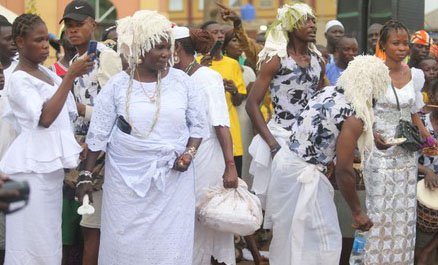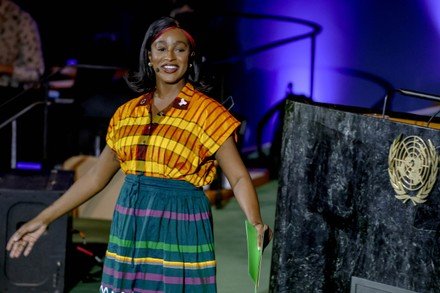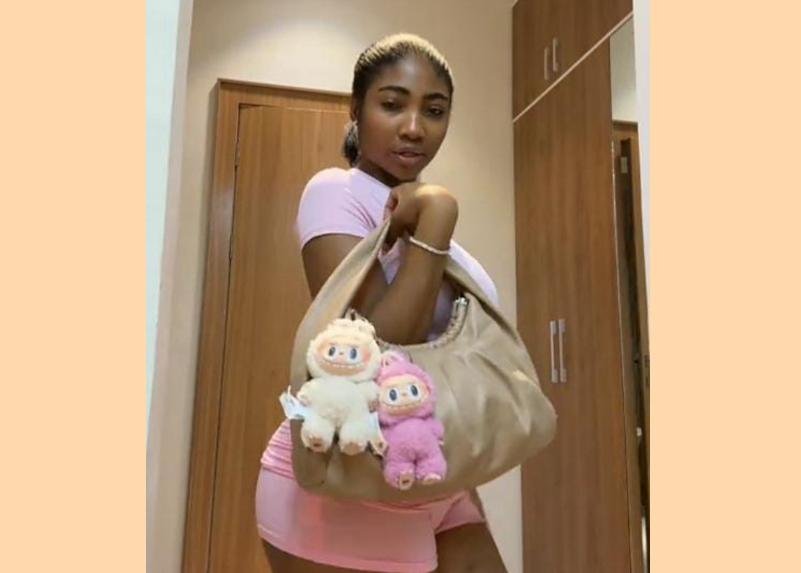The Labubu doll has sparked a global fashion frenzy, captivating people of all ages—women, men, teens, and even children—who now style it as a quirky accessory on handbags, backpacks, or as decorative pieces in their homes.
Originally designed by Hong Kong-born artist Kasing Lung and manufactured by Chinese toy giant Pop Mart International Group, Labubu made its debut as a character in Lung’s graphic novel series The Monsters Trilogy, which draws inspiration from Nordic mythology.
These distinctive dolls, featuring hinged keychains for convenient attachment, have gained traction through social media, especially via unboxing videos of mystery blind boxes. Enthusiastic users—particularly boutique sellers and female influencers—showcase their latest finds online, fueling the trend further.
The Labubu wave has extended far beyond China, sweeping through countries like South Korea, the U.S., Canada, the U.K., Italy, Spain, the UAE, and much of Southeast and East Asia.
A major push came when BLACKPINK’s Lisa (Lalisa Manobal) flaunted her Labubu bag charms, drawing attention from fans worldwide. Since then, numerous global celebrities—Rihanna, Dua Lipa, Kim Kardashian, Amelia Gray, David Beckham, Lizzo, Hailey Bieber, Simone Biles, Holly Madison, Sharvari, and Olivia Attwood—have embraced the trend.
Although no Nigerian celebrities have publicly joined the Labubu movement yet, local fans have eagerly adopted it. Some have added a humorous Nigerian twist by repurposing old dolls or even using local ‘Shigidi’ effigies as creative alternatives, turning the trend into a viral sensation.
On TikTok, Nigerian influencer Kasibaby (@lifestyle_ng) expressed her excitement in an unboxing video featuring her lemon-colored Labubu. “I bought it for N260,000 after nearly getting scammed by someone offering two for N40,000,” she said. Displaying the doll, she joked, “Is this what I spent N260,000 on? Yes, the neck moves, so it’s original… It’s giving! What do you guys think?” She added that she might either let her toddler play with it or keep it for herself as a comfort item.
Another local influencer, Angela Nwosu, spent around N200,000 (approximately $130) but was disappointed to receive a grey variant. Her reaction? She cut it apart with scissors on video.
The trend has even inspired real-life events—such as a recent Labubu meetup in Washington Square Park, New York—featuring themed activities like tattooing Labubu designs and a fashion contest for the best Labubu-styled look.
Online, unboxing reactions are mixed. While some celebrate receiving rare colors like pink, others show dismay at less desirable tones such as brown or grey. Some display their dolls in cars or on shelves, often covered to protect their fur.
A recent BBC article revealed that a 131cm (4ft 4in) Labubu figure was auctioned at Yongle International Auction in Beijing for a record-breaking 1.08 million yuan ($150,324; £110,465), making it the most expensive toy of its category ever sold.
Since its launch in 2019, Pop Mart has produced over 300 variations of Labubu, with prices ranging from $15 for a 3-inch figure to $960 for a 31-inch version. However, the popularity has also led to counterfeit versions—dubbed “Lafufu”—emerging in the market.
Genuine Labubu dolls are distinguishable by features like their soft fur, peachy complexion, glossy eyes, delicate airbrushed blush, and a signature count of nine teeth. They also bear the official “Pop Mart” and “Kasing Lung” marks on the right foot, often accompanied by “The Monsters” branding.
Thanks to Labubu’s massive success, Forbes recently reported that Wang Ning, Pop Mart’s 38-year-old founder, has become one of China’s top ten wealthiest individuals, with an estimated net worth of $22.7 billion—an impressive reflection of the growing global demand for designer collectible toys.









